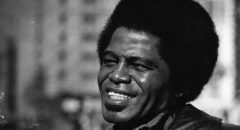
While millions of Americans are diagnosed with heart failure every year, studies show that Black people develop the disease at a much higher rate than other ethnicities. Worse yet, the American Heart Association estimates this rate will rise by as much as 30 percent in less than a decade. With this in mind, taking preventive measures against heart failure and taking care of yourself if you’ve already been diagnosed is a good idea.
10 Exercise Tips
This is a general guide for exercising safely when you’re dealing with heart failure. However, your doctor will provide a more personalized plan for you.
Start slowly – regardless of the stage of your heart failure, it’s essential not to over-exert yourself. Your breathing should be slightly increased but you should be able to converse.
Always warm up – you should never skip warming up and cooling down. Both of these steps help with your breathing and heart regulation.
Rest – your exercise routine should never be written in stone. You should rest whenever you need to but don’t lie down immediately after exercise as this affects your tolerance.
Find something you enjoy – experts recommend choosing an activity you enjoy as this ensures you’ll stick to it.
RELATED: Heart Attack Vs. Heart Failure: Here’s How To Tell The Difference
Lift weights responsibly – while weight lifting can be beneficial, you should never do it before talking to your doctor. You also shouldn’t lift weights.
Set light goals – it’s better to do small bursts of exercise more often than trying to do long bouts.
Make small changes – as you exercise, your tolerance should increase so it’s generally safe to exercise a little longer. However, doctors recommend adjusting your workout time by one to two minutes.
Monitor yourself while swimming – swimming is a great exercise but you can also work out more rigorously than








